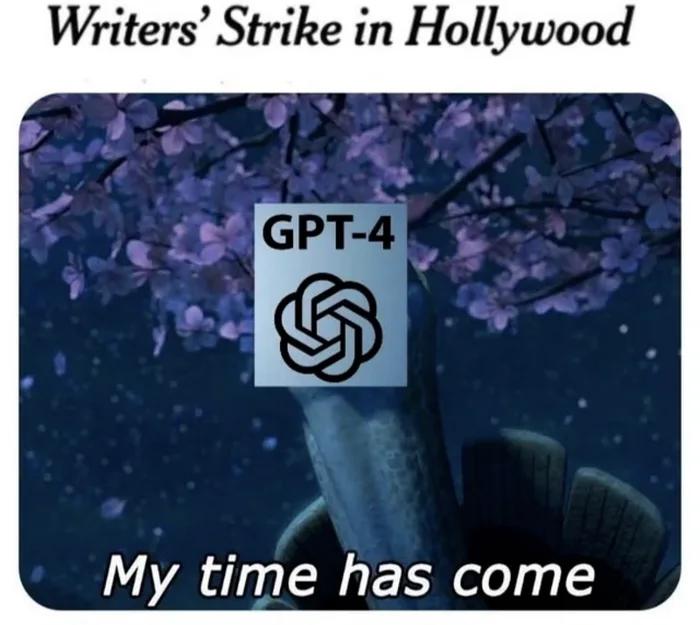The Writers Guild of America (WGA) strike has caused significant disruptions in the production of movies and TV shows as around 12,000 writers, represented by the WGA, are seeking improved pay and working conditions. One of the new issues emerging from the strike is the need to set boundaries on the use of AI in writers’ rooms.

Screenwriters are concerned about the widespread use of AI-powered chatbots like OpenAI’s ChatGPT. OpenAI’s researchers say chatbot technology could affect 80% of the US workforce, including writers and lawyers.
GAI (Generative AI) has already impacted the videogame industry, where generative AI art tools have significantly reduced artists’ workload by up to 70%.
Recently, an AI-generated photo even won a prestigious photography competition, surprising the judges, who were unaware that AI entirely generated the image.
Even Joe Russo, the filmmaker, and producer behind Avengers: Infinity War and Avengers: Endgame, predicts a future where AI “engineers storytelling” in movies, potentially replacing human writers with AI-generated content.
So potentially, what you could do with it is obviously use it to engineer storytelling and change storytelling. So you have a constantly evolving story, either in a game, movie, or TV show. You could walk into your house and save the AI on your streaming platform. “Hey, I want a movie starring my photoreal avatar and Marilyn Monroe’s photoreal avatar. I want it to be a rom-com because I’ve had a rough day,” and it renders a very competent story with dialogue that mimics your voice. It mimics your voice, and suddenly now you have a rom-com starring you that’s 90 minutes long. So you can curate your story specifically to you.
The WGA’s evolving stance on AI barriers during negotiations reflects the industry’s ongoing struggle with the impact of AI on the writing profession. While some initially believed that AI tools would be entirely banned from writers’ rooms, the WGA clarified that it is open to AI tools as long as it does not impact writers’ credits or residuals.
The WGA clarified its position on AI, stating that AI can be used as a supplementary tool but should not replace work covered by the Minimum Basic Agreement, the collective bargaining agreement between the WGA and studios.
The union believes that “AI software does not create anything. It generates a regurgitation of what it’s fed,” making it comparable to reference material like a Wikipedia article. Therefore, AI-generated text cannot be considered in determining writing credits, and its output is not eligible for copyright protection.
Screenwriters are already facing challenges due to the rise of streaming companies, which has led to smaller writers’ rooms, decreased pay, and a decline in syndication and residual income.
AI advancements threaten to deepen these issues, and some, including Joe Russo, predict that AI-powered movies could arrive as soon as two years from now.
Related Stories:
